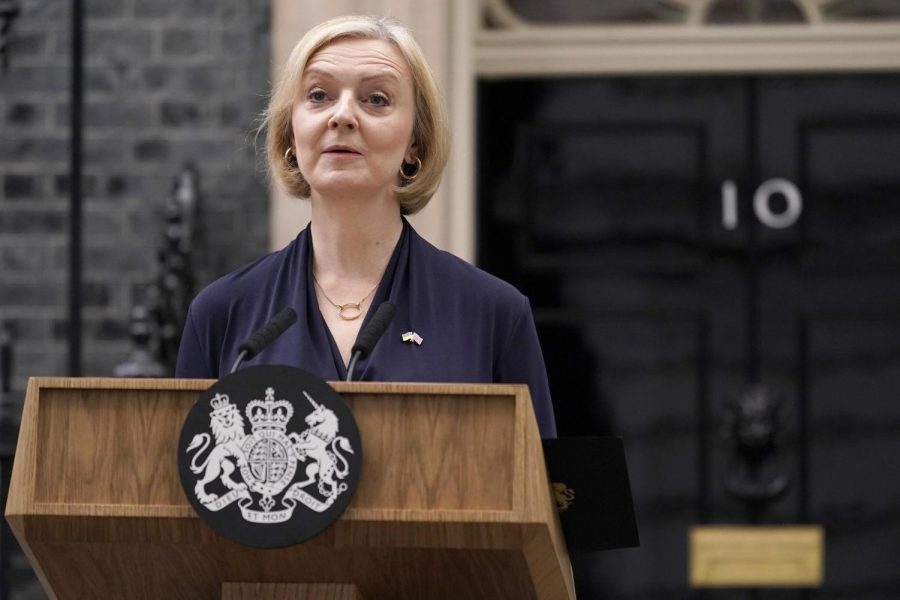New British PM Elected After Liz Truss’ Administration Ends
November 10, 2022
On October 20th, Conservative UK Prime Minister Liz Truss unceremoniously announced her resignation in front of her Downing Street home, ending her 44 day reign. Despite Truss’ term being remarkably brief, her approval ratings were unprecedentedly low, both in the UK and worldwide; according to YouGov.com, a British data analytics firm, only 10% of the country had a favorable view of her on the eve of her departure.
Despite mass outcry for an election to be called so that the citizens of the United Kingdom can directly vote on a new parliament and indirectly vote on a new Prime Minister, the ruling Conservative Party instead decided to internally elect their third executive this year: Rishi Sunak, a member of Parliament and former Finance Minister. From a purely political perspective, one can hardly blame the party for holding off on general elections; according to the latest polls from Statista, only 22% of the country would vote for the conservatives if an election was held today. Still, many are upset that the election will likely be delayed until January 2025 in order to give the Conservatives enough time to repair their public image.
Briar Woods AP Government teacher Larry Miller criticized Truss’ policies, saying that “[her] refusal to tax ‘windfall’ profits of energy companies coupled with borrowing plans to subsidize energy bills would have had a huge impact on their deficit and would have hurt their economy. However, her own party defeated her plans before they could be enacted.”
While Britain may have avoided the worst of economic devastation, Miller was worried that the country’s political integrity may not be so lucky, saying “British democracy is really struggling right now. The Conservative Party has run through 5 prime ministers in a short time. What is even more troubling is that the Labour Party [the main opposition party] is bumbling so badly that they can’t take power and provide an alternative to voters.”
Regardless of the drama surrounding Liz Truss’ resignation, many of those of Indian and South Asian descent are celebrating the ascension of Sunak – who is an Anglo-Indian – to the position of Prime Minister.
“Rishi Sunak’s ascension to the position of the Prime Minister is primarily symbolic for the Indian community. Historically, India has been oppressed by the British, so Rishi Sunak as the Prime Minister embodies the age of equality between Indian and British people, similar to when Barack Obama became president of the US,” said Krish Maheshwari and Samhita Gupta, the President and Director of Outreach, respectively, for the Briar Woods Indian Student Association. Maheshwari and Gupta also emphasized the international benefits of the UK having an Indian Prime Minister, saying “The increase in normalization of people of a historically oppressed race being in power would likely improve race relations globally. As governments, the UK and India may have increased levels of positive communications because of Rishi Sunak’s Prime Ministership.”
While the pandemonium seems to have subsided for now, only time will tell if the UK economy can fully recover and if the Conservative Party, as well as the government in general, can completely restore their reputation. Rishi Sunak’s electoral victory was certainly an important step in the ugly, complicated history between the UK and India, and his performance will be critical to the standing and stability of Britain. When asked if he thought Sunak would be better for the UK’s economy and the Conservative Party, Larry Miller characterized the uncertain future by only saying the word “Maybe…”


